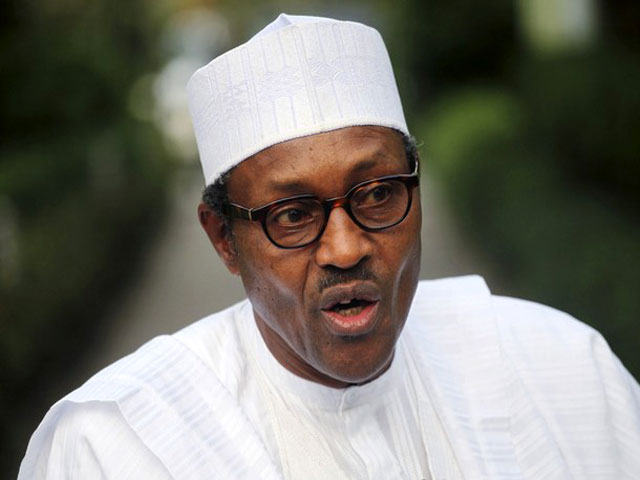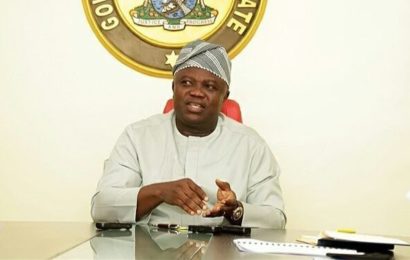 It appears the President Muhammadu Buhari led federal governmet is yet to believe that the nation’s economy can be driven out of recession by exploit the potentials in other key sectors of the economy especially the Information Communication Technology(ICT) as being recommended by experts across the globe.
It appears the President Muhammadu Buhari led federal governmet is yet to believe that the nation’s economy can be driven out of recession by exploit the potentials in other key sectors of the economy especially the Information Communication Technology(ICT) as being recommended by experts across the globe.
The President yesterday revealed that Nigeria’s source out of economic recession still lies in proceeds from the oil and gas sector.
Speaking at the launch of the ministry of petroleum #7BigWins initiative in Abuja on Thursday, Buhari said oil proceeds are needed to lay a solid foundation for a diversified economy.
“The Petroleum industry remains critical to the Nigerian economy of today and the future, despite our current challenges,” Buhari said.
“The golden era of high oil prices may not be here now, but Oil and Gas resources still remain the most immediate and practical keys out of our present economic crisis.
“Oil and Gas still remain a critical enabler for the successful implementation of our budget as well as the source of funds for laying a strong foundation for a new and more diversified economy.”
He said “as important as it is to ensure that Agriculture, Solid minerals and other critical sectors of the economy are,” the country still needs “a virile and efficient oil & gas industry to take care of our foreign exchange requirements”.
“This Roadmap reflects the vision and aspiration of this Administration for this sector and I urge you all to deliver on the expectations contained in the Petroleum Industry Roadmap. This is a national imperative and a core thrust of our economic policy.”
Buhari restated his resolve to restoring peace to the Niger-Delta, and enabling sustainable reforms in the oil and gas sector.
“Therefore, the task before the Ministry of Petroleum Resources is to maximize the potentials and opportunities across the whole range of the Oil and Gas industry to stimulate our economy in spite of the current challenges.
“To do this certainly requires creativity, innovation, technology and robust partnership amongst various stakeholders.
“There is also a dire need to instill a new culture of transparency and efficiency in the industry, streamline operations along best practices by championing and implementing strategic reforms at every layer of the industry.
“This will help us improve oil and gas production, explore our frontier basins, improve our local refining capacity and above all build sustainable partnerships with the oil producing communities.
“If we are able to plug the leakages, and tighten loose systems that characterized this industry in the days of high oil prices, we are convinced that we can do even more with the little that we are getting at the moment than we did even in the time of plenty.
“As you are aware, recent developments in the Niger Delta have temporarily limited our oil and gas production and supplies. However, let me reaffirm that, whatever challenges we are currently facing in the region, our resolve and capability to work with all stakeholders to restore normalcy will guarantee success.”
.Meanwhile, economic and technology analysts said the President really need to widen his horizon noting that one of the viable sectors that the nation’s economy could sit on is the ICT sector. They said apart from Foreign Direct Investment comparative edge from the sector into government coffers, its market potentials are wealth yet untapped.
According to facebook founder Mark Zuckerberg who recently visited Nigeria, “there are expansion and investment opportunities in Nigeria’ technology industry stating that the nation telecommunication and technology entrepreneur sub-sectors are enough market potentials that could generate economic boom, contribute significantly to the nation’s GDP and as well address the teeming unemployment among the young adults in the country, just if government would really look inward,” he said.
In the view of the Executive Director, Nigeria’s Communications Commission (NCC) Professor Umar Dambatta who was represented by Director of Public Affairs Tony Ojobo at at a recent stakeholders forum on the state of the nation in Lagos as it affect telecommunication sector “amid the macroeconomic uncertainty of 2015 and the first half of 2016, the performance of Nigeria’s telecoms sector was marked by steady subscriber growth and this has been aided with a renewed regulatory mandate and continued infrastructure development.
He added that “By July 2016 the country was home to 150.3m active telecoms subscribers. This user base represents 81.7% of the total population of 184m in 2016, with the mobile segment accounting for more than 99% of subscriptions. Over the course of 2015 and 2016 the ICT industry has developed rapidly on the back of state-led growth initiatives and also, increasingly, as a result of rising levels of private sector activities. So I can buoyantly say that with more Foreign Direct Investment and continued focus of the Presidency in the sector, the ICT industry will liberate the economic cobweb of the nation.”
According to estimates compiled by the Federal Ministry of Communications, in 2015 ICT-related activities accounted for nearly 11% of GDP, up from 6% in 2012 and less than 1% as recently as 2001. The rapid uptake of mobile data subscriptions over the past few years, plus the steadily rising number of smartphone handsets in circulation indicate significant unmet demand for digital products and services.








